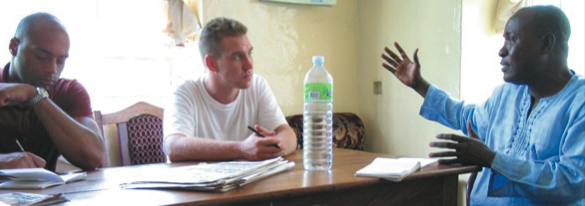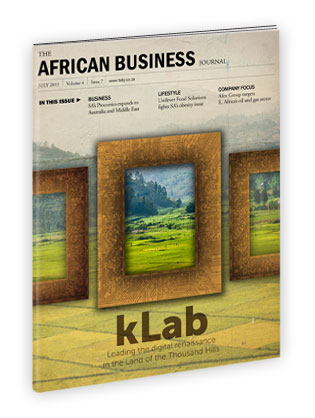Take the elevator up to the 6th floor of the Telecom House in Kigali, Rwanda and you'll not only find a stunning panoramic view of the city's endless hills, but you'll also walk right into a vibrant, open space of modernity and innovation known as kLab. While in the city, I had the distinct opportunity of writing the cover story about this up and coming tech hub and incubator for the African Business Journal. Speaking with founding member and general manager, Claude Migisha, I gained more insight into the country's burgeoning ICT industry and the various solutions local entrepreneurs are developing. "Africa will be the next birth place for innovation and the hub for world renknowned tech companies," says Migisha and it was both humbling and thrilling to see first-hand the seeds of this reality being planted at kLab.
International Day to End Impunity
The first ever International Day to End Impunity was observed in the Philippines with particular fervour as it also marked the second anniversary of the most brutal attack on the press and on democracy. The Ampatuan town massacre of 2009 saw some 58 civilians murdered, 32 of which were journalists. Human rights advocates, students, lawyers, and the media marched towards Malacañang Palace to demand justice for the many slain journalists who were killed in the line of duty and whose murderers and masterminds continue to go unpunished.
The following photos are just a glimpse of November 23rd...
Media that Matters: Translating Rights into Reality
The following is an excerpt from a piece I wrote in Peace Magazine for the October-December issue.
"Awareness is the first and most necessary step in ending human rights abuses.” ...it’s a statement I have found myself saying over and over again both to myself and to others when talking about human rights violations around the world and the media’s role in reporting these issues. After all, if people aren’t aware of the rights and freedoms they are entitled to, how can one possibly, in the words of the ever-wise Bob Marley, “get up, stand up—stand up for your rights”?
Yes, awareness is the answer. It’s so intuitive, so common sense, so simple. But alas, common sense does not necessarily reflect reality and simple does not mean easy. Regrettably, around the world, including some of the most developed and prosperous countries, there is an outrageous and glaring lack of awareness of our most basic and fundamental human rights.
The media have a huge role to play in solving this problem by highlighting the gap between every individual’s guaranteed human rights and what they experience in reality. With their ability to reach millions of people, whether through print, radio, television, or now in our increasingly digital world, the Internet, the media are essential to a vibrant democracy that does not tolerate arbitrary abuse.
 Journalists for Human Rights trainers working alongside a local journalist in Ghana
Journalists for Human Rights trainers working alongside a local journalist in Ghana
Let me demonstrate. A single radio station in the Democratic Republic of the Congo (DRC), the most important medium for information in the country, reaches thousands of Congolese people. Now multiply that by the approximately 360 local community radio stations that exist in the DRC and imagine the number of people who can be informed of their rights. In fact, a study in Ghana on the UN Convention on the Rights of the Child found that the media was the largest source of information about the treaty. The media thus has the power to expose human rights abuses when they happen, to hold relevant actors accountable for their actions, and to empower marginalized and vulnerable communities to speak out and protect themselves.
But herein lies the rub: We live in a world where press freedom has been on the decline, where only 35% of all the countries in the world enjoy a free press, and where the infrastructure for a strong and independent media is, in many countries, virtually nonexistent.
In such a situation, it is no wonder that investment in local media is largely missing from the wider discussion of international development. Indeed, media development makes up a meager 0.5% of all international development efforts.
Despite this seemingly insignificant number, some organizations are working tirelessly to strengthen the journalism sector in some of the harshest conditions in the world—and are even achieving tangible success. To continue reading, download the PDF here.
World Press Freedom Day
It's World Press Freedom Day today so I thought I'd share a video with you (a new terrain for me, people!) that highlights my recent trip to the Newseum in Washington D.C. -- a fantastic place to visit if you ever find yourself in the city. So many great exhibitions that not only traces the history of journalism, but also showcases the importance of press freedom and the brave work of journalists who often put their lives at risk to tell the stories where there are no voices.
"...were it left to me to decide whether we should have a government without newspapers, or newspapers without a government, I should not hesitate a moment to prefer the latter" - Thomas Jefferson
If you'd like to learn more about the freedom of the press, visit the following websites:
Reporters without Borders
Committee to Protect Journalists
Freedom House
Press Freedom Map
Journalists Memorial
Side note: I am a total newb at making videos. Please forgive.

